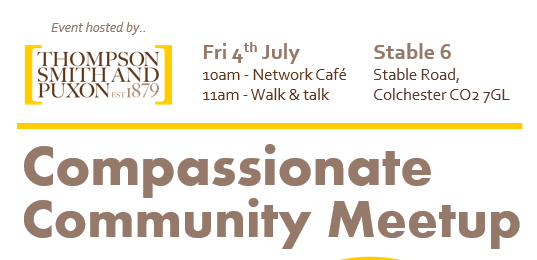Peter Lewis: When it comes to inclusivity, the charity sector falls behind
Posted on: March 5, 2019
Originally published by charitytimes: www.charitytimes.com
Written by Peter Lewis
05/03/19
Values are the bedrock of what we, as charities, do. Every charity is set up for public benefit, to make a positive difference to the lives of communities and individuals, whether here in the UK or internationally.
Our organisations are founded on the principle of doing good and that drives us to deliver the best we can for the causes we serve. But values for charities aren’t just an expression of what we do. They have to guide how we do it, the culture that our organisations adopt, and the way we work with our beneficiaries, supporters, staff and volunteers. Being values-driven and taking an ethical approach is not about just achieving an outcome – it’s about a way of working that demonstrates and embeds the values and behaviours that we know are important.
We rightly set out our ethics and values as higher than those of the private sector, and this means that when our behaviours fall below these standards, our approach and practices are justifiably put in the spotlight.
The safeguarding failures which came into sharp relief in 2018 has led to a huge amount of work, at all levels across the sector, to reflect on how we need to do better.
The Charity Ethical Principles published by NCVO in January, which I was pleased to contribute to on behalf of the Institute of Fundraising, was an interesting process to agree a common vision of the ethical principles that should be at the heart of how all charities work.
In the fundraising community itself, following the poor practices that were brought to light in 2015, I’ve seen charities all across the UK taking steps to think carefully about their approaches, revising and refreshing their policies, and taking real action to ensure their values are at the heart of everything they do.
But sometimes we can look at the charity sector in a bit of a bubble. We should remember that at least some in the business sector are seeing values and ethics as increasingly important for their future success, with some even giving heads of ethics a seat in the boardroom.
The Institute of Business Ethics, reporting on the biggest issues of concern in 2018, found that those relating to treatment of employees, behaviour, and culture were by far the most reported areas of ‘ethical lapses’ over the course of the year. The recent Edelman Trust Barometer research also reflects just how important trust and values are, not just to the external world, but also to your employees themselves.
Through our work at the Institute of Fundraising in equality, diversity and inclusion, we have found that in many ways the private sector is ahead of the charity sector. This is true when it comes to reaching out to diverse communities, creating inclusive workplaces that attract the best talent, as well as retaining and developing people based solely on merit.
Inevitably, there are always going to be questions we need to keep asking of ourselves within the charity sector. What kind of organisations do we aspire to be? How do we want to be embedded in our local communities? How representative are we of the communities we serve? How can we make our fundraising teams as diverse and inclusive as possible? How do we care for and support our teams of staff and volunteers? And of course, how do we continue to deliver excellent fundraising for our supporters and beneficiaries?
The key is to never think we found the answer and stick to it. We have to continue to pay attention to how society is changing around us and challenge ourselves, not just in relation to our vision of what we want to achieve but also how we want to get there.
That is the same for us at the IoF, as it is for one of our largest charities in the UK or for a small local charity. The continued restlessness to always do better for our causes should be equally applied to the way in which we pursue those objectives.
Peter Lewis is chief executive of the Institute of Fundraising


